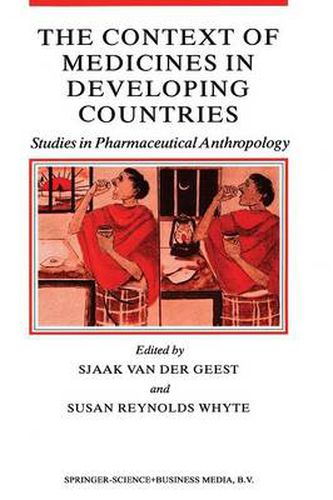Readings Newsletter
Become a Readings Member to make your shopping experience even easier.
Sign in or sign up for free!
You’re not far away from qualifying for FREE standard shipping within Australia
You’ve qualified for FREE standard shipping within Australia
The cart is loading…






This title is printed to order. This book may have been self-published. If so, we cannot guarantee the quality of the content. In the main most books will have gone through the editing process however some may not. We therefore suggest that you be aware of this before ordering this book. If in doubt check either the author or publisher’s details as we are unable to accept any returns unless they are faulty. Please contact us if you have any questions.
Western pharmaceuticals are flooding the Third World. Injections, capsules and tablets are available in city markets and village shops, from ‘traditional’ practitioners and street vendors, as well as from more orthodox sources like hospitals. Although many are aware of this ‘pharmaceutical invasion’, little has been written about how local people perceive and use these products. This book is a first attempt to remedy that situation. It presents studies of the ways Western medicines are circulated and understood in the cities and rural areas of Africa, Asia and Latin America. We feel that such a collection is long overdue for two reasons. The first is a practical one: people dealing with health problems in developing countries need information about local situations and they need examples of methods they can use to examine the particular contexts in which they are working. We hope that this book will be useful for pharmacists, doctors, nurses, health planners, policy makers and concerned citizens, who are interested in the realities of drug use. Why do people want various kinds of medicine? How do they evaluate and choose them and how do they obtain them? The second reason for these studies of medicines is to fill a need in medical anthropology as a field of study. Here we address our colleagues in anthropol ogy, medical sociology and related disciplines.
$9.00 standard shipping within Australia
FREE standard shipping within Australia for orders over $100.00
Express & International shipping calculated at checkout
Stock availability can be subject to change without notice. We recommend calling the shop or contacting our online team to check availability of low stock items. Please see our Shopping Online page for more details.
This title is printed to order. This book may have been self-published. If so, we cannot guarantee the quality of the content. In the main most books will have gone through the editing process however some may not. We therefore suggest that you be aware of this before ordering this book. If in doubt check either the author or publisher’s details as we are unable to accept any returns unless they are faulty. Please contact us if you have any questions.
Western pharmaceuticals are flooding the Third World. Injections, capsules and tablets are available in city markets and village shops, from ‘traditional’ practitioners and street vendors, as well as from more orthodox sources like hospitals. Although many are aware of this ‘pharmaceutical invasion’, little has been written about how local people perceive and use these products. This book is a first attempt to remedy that situation. It presents studies of the ways Western medicines are circulated and understood in the cities and rural areas of Africa, Asia and Latin America. We feel that such a collection is long overdue for two reasons. The first is a practical one: people dealing with health problems in developing countries need information about local situations and they need examples of methods they can use to examine the particular contexts in which they are working. We hope that this book will be useful for pharmacists, doctors, nurses, health planners, policy makers and concerned citizens, who are interested in the realities of drug use. Why do people want various kinds of medicine? How do they evaluate and choose them and how do they obtain them? The second reason for these studies of medicines is to fill a need in medical anthropology as a field of study. Here we address our colleagues in anthropol ogy, medical sociology and related disciplines.